Déclaration conjointe du Conseil d’administration de Geopragma, le 10 octobre 2019 :
La situation des Kurdes syriens est tragique. Elle illustre les souffrances d’un peuple sans Etat éparpillé aux quatre coins de plusieurs pays. Mais se lamenter n’est pas suffisant. Le réalisme nous impose de voir que la situation actuelle découle en partie de la stratégie floue et hasardeuse des puissances occidentales dans le conflit syrien depuis 2011.
Depuis 2011 une absence d’analyse stratégique
Voici ce que nous pouvions savoir dès 2011 :
- Membre de l’OTAN, la Turquie n’accepterait jamais l’existence d’un Kurdistan syrien autonome ou pire, indépendant, si celui-ci venait à être parrainé par les Kurdes turcs du PKK ;
- Les Kurdes sont des alliés militaires extrêmement utiles contre notre ennemi principal que sont les différents avatars du djihadisme sunnite, qu’il s’agisse de l’Etat islamique ou d’autres groupes dits « rebelles » ;
- Le seul Kurdistan existant pour l’instant de façon autonome est celui d’Irak : sa viabilité tient d’une part à son maintien au sein des frontières irakiennes, d’autre part à ses relations pacifiées avec la Turquie, lesquelles sont fondées sur l’exportation des hydrocarbures vers Ankara et le non-soutien au PKK ;
- Le djihadisme et plus globalement le chaos politique prospèrent notamment sur la déréliction des structures étatiques. La création de vastes zones sans réelle et solide gouvernance doit être évitée au maximum ;
- Les opérations de « nationbuilding » fonctionnent mal, plus encore si l’Etat nation à construire est vu comme une menace par la plupart de ses voisins. Elles exigent par ailleurs un coût financier et une durée d’intervention qui sont absolument incomparables avec ceux d’une opération militaire classique.
Nous pouvions dès lors tirer plusieurs conclusions négatives :
- Créer une enclave kurde de facto dissociée du gouvernement syrien et dominée par le PKK amènerait inéluctablement à une intervention turque ;
- Les puissances occidentales n’auraient pas réellement les moyens de s’opposer à une telle intervention menée par un membre de l’OTAN ;
- Plus largement, la création d’un Kurdistan syrien viable représenterait un projet économique et politique excédant les capacités des puissances occidentales, d’autant que le modèle économiquement collectiviste et politiquement autoritaire du PKK empêcherait tout développement harmonieux.
Etant donné cela, associer les Kurdes à la lutte contre Daech était une nécessité à la condition que cette association se fasse dans le cadre d’une coordination minimale avec le gouvernement syrien et avec ses alliés russe et iranien. Au début du conflit, un accord tacite a d’ailleurs été passé entre les Kurdes syriens et le gouvernement de Damas : il s’agissait d’une sorte de pacte de non-agression, l’armée syrienne et les milices chiites laissant le champ libre aux Kurdes pour s’occuper d’eux-mêmes.
L’utilisation des Kurdes par les Américains dans une logique de containment à courte vue
Mais cet accord tacite est progressivement tombé avec la création des Forces démocratiques syriennes sous l’égide des Américains : les objectifs de la coalition arabo-kurde, mais dominée par les Kurdes, était d’une part de lutter contre Daech, mais d’autre part d’endiguer la reconquête par Damas des zones djihadistes, notamment à l’Est de l’Euphrate. Si le premier objectif était évidemment des plus louables, ce second objectif, jamais clairement assumé, condamnait les Kurdes à devenir les supplétifs des Etats-Unis et à voir leur territoire servir de point d’appui depuis lequel Washington pouvait espérer continuer d’exercer une certaine pression sur l’ensemble des acteurs régionaux. L’espace conquis par les FDS descendant bien au sud des zones de peuplement kurdes pour couvrir tous les territoires syriens à l’est de l’Euphrate entrait dans une logique de « containment » pour empêcher la structuration d’un axe Téhéran-Bagdad-Damas-Beyrouth.
La tragédie que les Kurdes vivent découle largement de cette situation. Ceci est d’autant plus cynique que les Etats-Unis savaient dès le début, qu’ils ne resteraient pas éternellement en Syrie, qu’ils ne mettraient pas les milliards nécessaires à la reconstruction du Kurdistan syrien et qu’en cas de conflit entre les Kurdes et la Turquie, ils choisiraient (certes en protestant) Ankara, membre de l’OTAN.
Nous y sommes, pour le plus grand malheur des Kurdes. La situation des Kurdes syriens est le fruit de l’irreal politik occidentale qui sévit, pour le cas de la France, depuis le tournant atlantiste de notre diplomatie et l’abandon des principes gaulliens qui, en matière de politique étrangère, ont été jusqu’en 2003 un socle commun partagé tant par la droite que par la gauche. Cette époque révolue nous manque. Elle manque aussi aux peuples du Moyen-Orient.
Que peut faire la France pour les Kurdes?
Même si la résistance kurde apparaît réelle, il est probable que Recep Erdogan finisse par obtenir, peu à peu, le corridor d’une trentaine de kilomètres de large qu’il souhaite établir le long de la frontière syro-turque pour installer les centaines de milliers de migrants syriens, dont la population turque ne veut plus. Cette dimension migratoire n’est pas sans représenter, pour nos pays occidentaux, une menace mortelle en matière de risque terroriste. Le Kurdistan syrien ne peut demeurer ce qu’il a été trop longtemps, pour le malheur des Kurdes eux-mêmes, une enclave occidentale visant à endiguer le trio Damas-Téhéran-Moscou.
La seule option qui permettrait d’éviter ce scénario du pire et qui préserverait la sécurité des Kurdes est une solution à l’irakienne : une région kurde disposant d’une large autonomie au sein d’une Syrie unitaire mais fédéralisée. Mais ceci exige d’abandonner la politique irréaliste de suivisme des Etats-Unis conduite depuis 2012, de favoriser un dialogue entre le gouvernement syrien et les représentants kurdes de Syrie.
Nous en sommes très loin tant, dans chaque camp, les positions sont aujourd’hui opposées… Seuls contre tous et forts de notre seul soutien moral, les Kurdes ne survivront pas longtemps. Il existe néanmoins aujourd’hui un dialogue régional entre les principales puissances (Turquie, Iran, Irak, Syrie) coordonné par la Russie. La France ne peut retrouver une influence dans cette région qu’en s’inscrivant dans ce contexte. Nier l’existence de cet espace de discussion serait une aberration, même s’il nous énerve naturellement car il symbolise l’ampleur de l’affaiblissement de notre influence au Levant. En tenant compte des équilibres locaux et régionaux plutôt qu’en privilégiant une internationalisation du conflit, la France pourrait à la fois être fidèle à ses alliés kurdes contre l’islamisme radical, restaurer une présence en Syrie et retrouver petit à petit le rôle de médiateur qu’elle a abandonné pour un suivisme contraire à ses intérêts et à son rôle dans le monde.



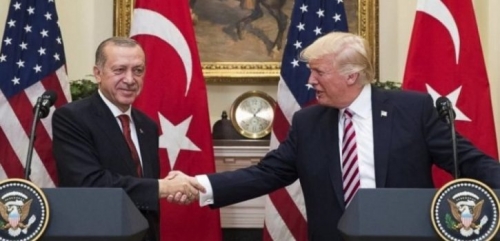

 del.icio.us
del.icio.us
 Digg
Digg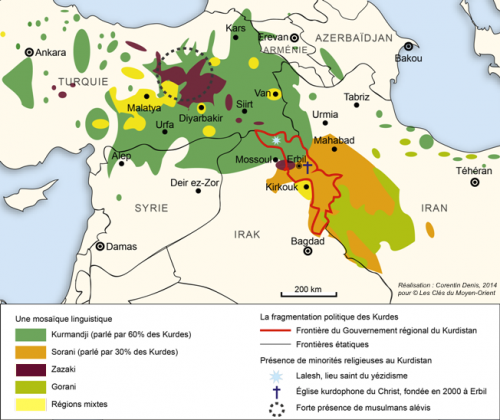
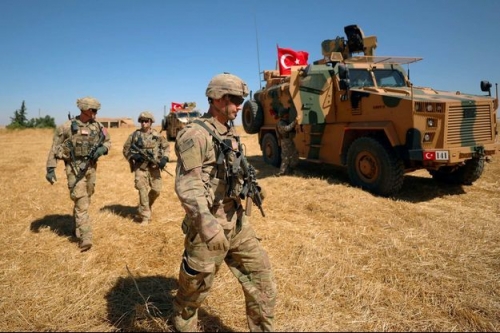
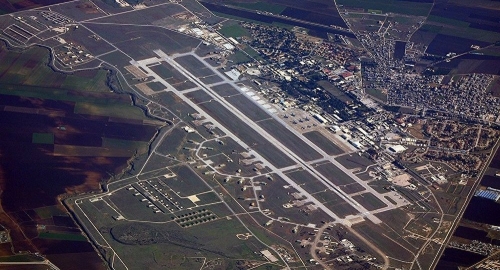
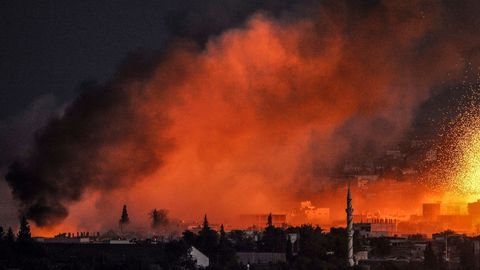
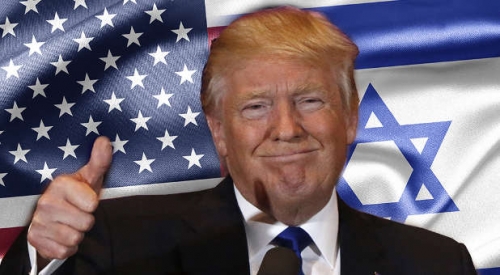
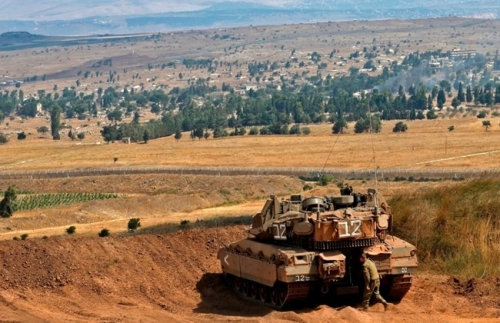
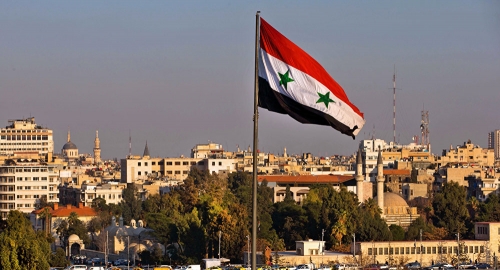
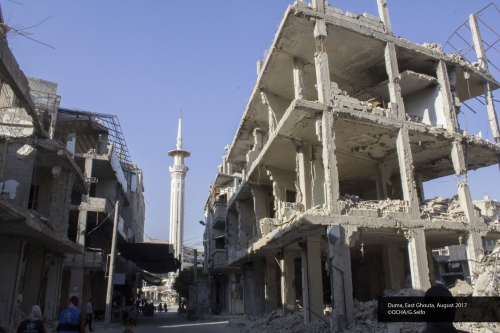
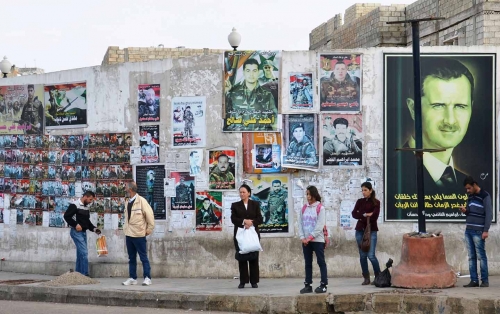
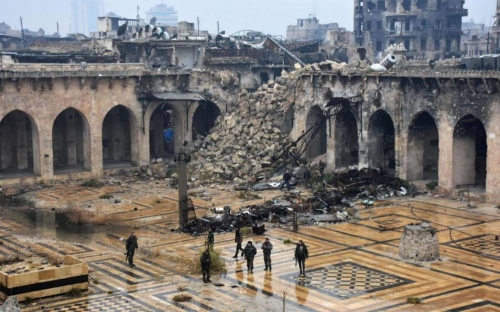
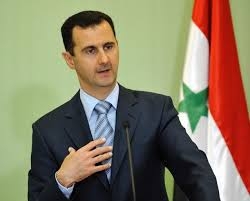
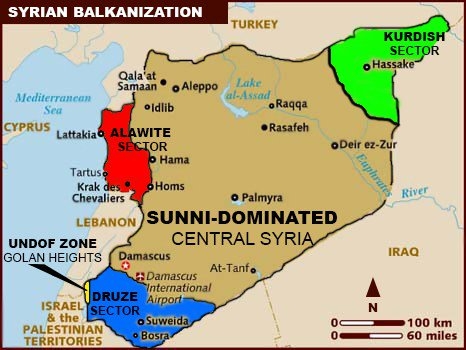
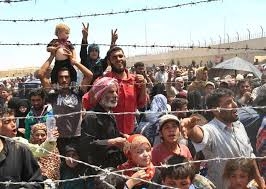
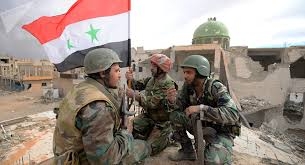
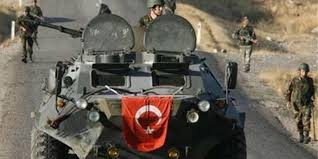
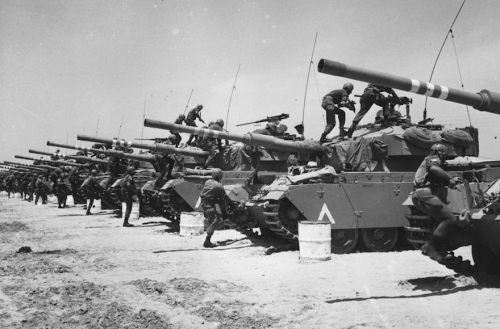
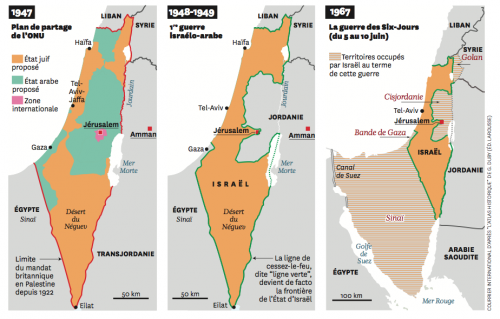
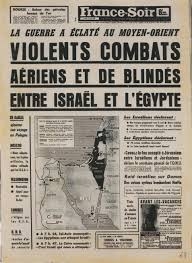 Dans le monde arabe, à la défaite militaire s’ajoute la défaite symbolique. Il y a bien évidemment l’humiliation de l’occupation : le Sinaï égyptien (qui sera récupéré par le président Sadate), le Golan syrien (annexé en 1981), les fermes libanaises de Chebaa et les territoires palestiniens de Gaza et de Cisjordanie (dont Jérusalem-Est), administrés auparavant par l’Égypte et la Jordanie. Il y a aussi la spoliation du peuple palestinien, qui se retrouve occupé et malmené pendant des décennies par une puissance étrangère. Mais il y a aussi l’échec du nationalisme arabe qui en annoncera bien d’autres. Cet échec de trois grandes armées arabes encouragera le réveil de la résistance palestinienne. Dans les années 1970, l’Organisation de libération de la Palestine (OLP) jouera un rôle analogue à celui de Nasser, décédé en 1970. En Jordanie comme au Liban, Yasser Arafat apparaîtra comme une figure tutélaire à son tour, stimulé par quelques succès militaires dont les grandes armées arabes ont été incapables. On retrouvera ce phénomène avec le Hezbollah libanais. Un peu plus de dix ans après cette guerre, à la cause arabe contre Israël se substituera une cause nouvelle, nourrie par la montée du wahhabisme à la faveur des pétrodollars, celle de la guerre d’Afghanistan (1979). Tandis que l’Égypte vient de signer un traité de paix avec Israël (ce que la Jordanie fera en 1994), des milliers de combattants venus du monde arabe se retrouveront ainsi plongés dans un conflit lointain au nom d’une appartenance religieuse, encouragés par les Américains et contre l’ennemi « impie » tout désigné : l’Union soviétique.
Dans le monde arabe, à la défaite militaire s’ajoute la défaite symbolique. Il y a bien évidemment l’humiliation de l’occupation : le Sinaï égyptien (qui sera récupéré par le président Sadate), le Golan syrien (annexé en 1981), les fermes libanaises de Chebaa et les territoires palestiniens de Gaza et de Cisjordanie (dont Jérusalem-Est), administrés auparavant par l’Égypte et la Jordanie. Il y a aussi la spoliation du peuple palestinien, qui se retrouve occupé et malmené pendant des décennies par une puissance étrangère. Mais il y a aussi l’échec du nationalisme arabe qui en annoncera bien d’autres. Cet échec de trois grandes armées arabes encouragera le réveil de la résistance palestinienne. Dans les années 1970, l’Organisation de libération de la Palestine (OLP) jouera un rôle analogue à celui de Nasser, décédé en 1970. En Jordanie comme au Liban, Yasser Arafat apparaîtra comme une figure tutélaire à son tour, stimulé par quelques succès militaires dont les grandes armées arabes ont été incapables. On retrouvera ce phénomène avec le Hezbollah libanais. Un peu plus de dix ans après cette guerre, à la cause arabe contre Israël se substituera une cause nouvelle, nourrie par la montée du wahhabisme à la faveur des pétrodollars, celle de la guerre d’Afghanistan (1979). Tandis que l’Égypte vient de signer un traité de paix avec Israël (ce que la Jordanie fera en 1994), des milliers de combattants venus du monde arabe se retrouveront ainsi plongés dans un conflit lointain au nom d’une appartenance religieuse, encouragés par les Américains et contre l’ennemi « impie » tout désigné : l’Union soviétique.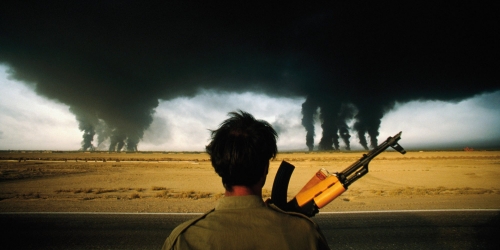
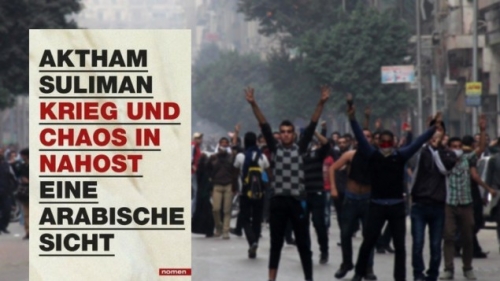
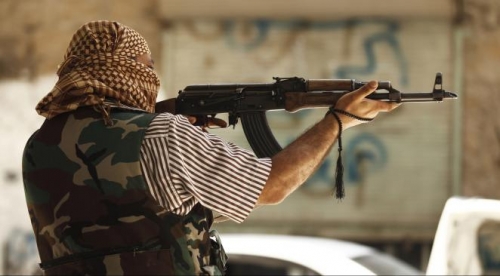
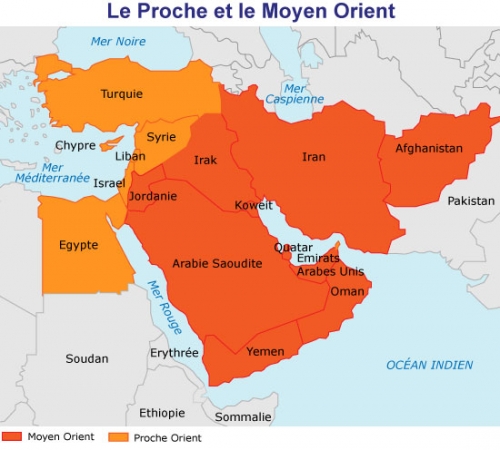

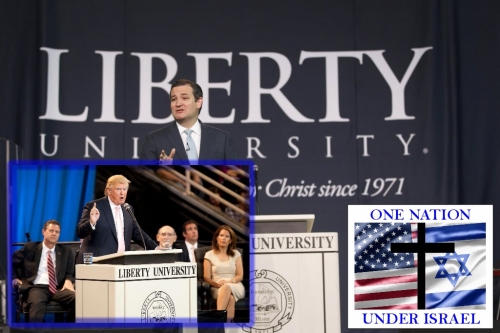
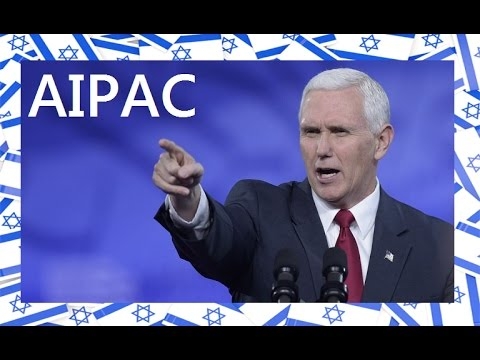
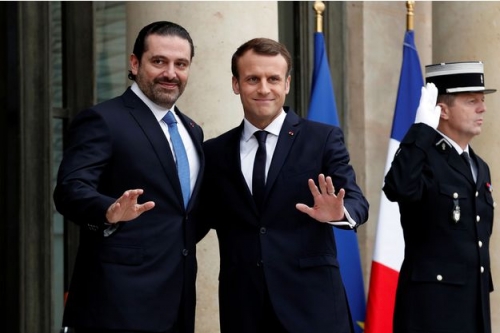
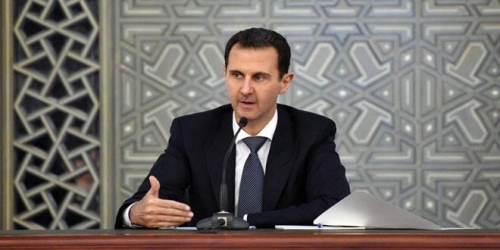
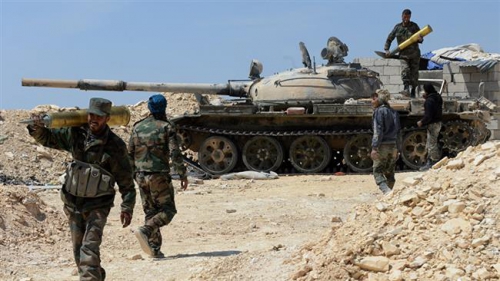
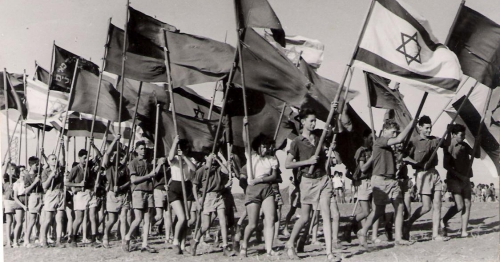
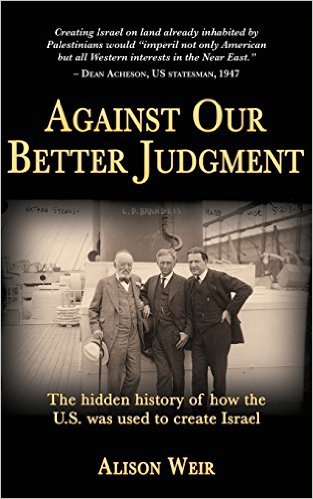 Alison Weir's relatively short book covers the history of Zionism in the United States from the last decades of the 19th century until the creation of the state of Israel in 1948. (She is working on a second volume that will carry this history to the present.) Its brevity does not mean, however, that it is in any sense superficial, as it brings out key historical information, all well-documented, that sets the stage for the troubled world in which we now live. While histories of Zionism have usually focused on Europe, Weir shows that American adherents of this ideology have been far more important than generally has been recognized
Alison Weir's relatively short book covers the history of Zionism in the United States from the last decades of the 19th century until the creation of the state of Israel in 1948. (She is working on a second volume that will carry this history to the present.) Its brevity does not mean, however, that it is in any sense superficial, as it brings out key historical information, all well-documented, that sets the stage for the troubled world in which we now live. While histories of Zionism have usually focused on Europe, Weir shows that American adherents of this ideology have been far more important than generally has been recognized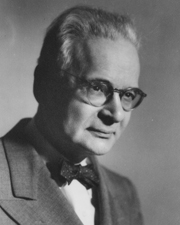 Kallen was regarded by some as first promoting the idea for what became the Balfour Declaration, which would set the stage for the modern state of Israel. He promoted this scheme in 1915 when the U.S. was still a neutral. He told a British friend that this would serve to bring the United States into World War I. It should be pointed out that at that time, despite serious diplomatic issues regarding German submarine warfare, the great majority of the American people wanted to avoid war and Wilson would be re-elected president in November 1916 on the slogan “He kept us out of war.” Kallen’s idea for advancing the Zionist goal, however, soon gained traction.
Kallen was regarded by some as first promoting the idea for what became the Balfour Declaration, which would set the stage for the modern state of Israel. He promoted this scheme in 1915 when the U.S. was still a neutral. He told a British friend that this would serve to bring the United States into World War I. It should be pointed out that at that time, despite serious diplomatic issues regarding German submarine warfare, the great majority of the American people wanted to avoid war and Wilson would be re-elected president in November 1916 on the slogan “He kept us out of war.” Kallen’s idea for advancing the Zionist goal, however, soon gained traction. Although Segev is a daring historian who often rejects the Zionist myths on the creation of Israel, in this case he essentially relies on a classic Zionist-constructed strawman, which involves greatly exaggerating the view that the Zionists (and Jews in general) don’t like. It is highly doubtful that the British foreign office believed that Jews were so powerful as to be “turning the wheels of history.” (If that had been the case, one would think that the British would have offered Jews much more than Palestine from the very start of the war.) Furthermore, as noted earlier, Weir does not subscribe to anything like this Zionist strawman in regard to the Balfour Declaration, or anything else, I should add.
Although Segev is a daring historian who often rejects the Zionist myths on the creation of Israel, in this case he essentially relies on a classic Zionist-constructed strawman, which involves greatly exaggerating the view that the Zionists (and Jews in general) don’t like. It is highly doubtful that the British foreign office believed that Jews were so powerful as to be “turning the wheels of history.” (If that had been the case, one would think that the British would have offered Jews much more than Palestine from the very start of the war.) Furthermore, as noted earlier, Weir does not subscribe to anything like this Zionist strawman in regard to the Balfour Declaration, or anything else, I should add.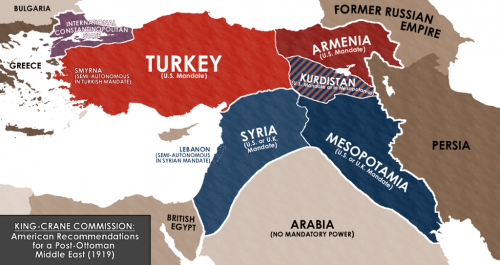
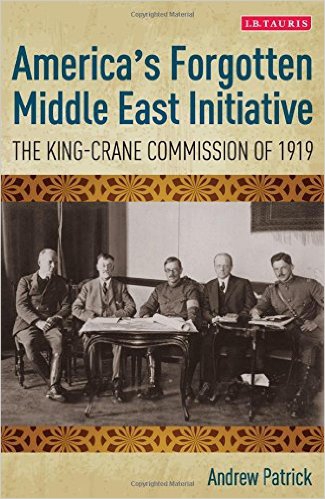 One minor criticism here is that the reader might incorrectly get the impression that the King-Crane Commission dealt solely with Palestine, while it actually involved all the territories severed from, or expected to be severed from, the Ottoman Empire (Turkey).
One minor criticism here is that the reader might incorrectly get the impression that the King-Crane Commission dealt solely with Palestine, while it actually involved all the territories severed from, or expected to be severed from, the Ottoman Empire (Turkey).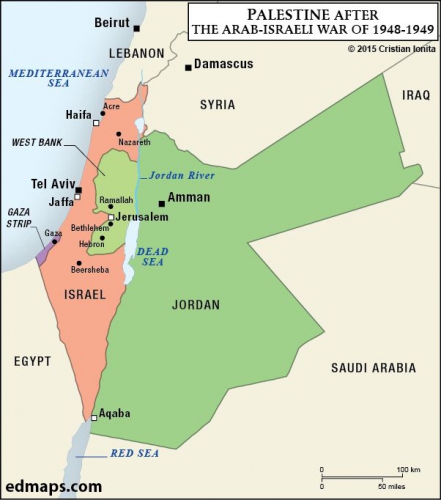
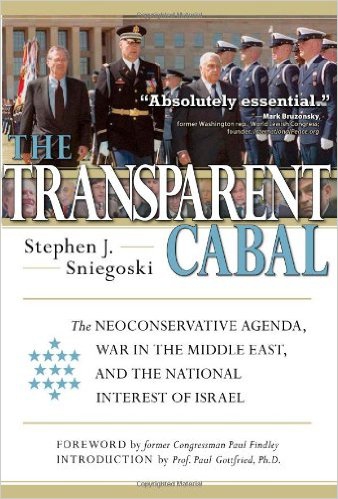 A quick aside here: somewhat ironically, in my view, Weir barely touches on the United States decision to recognize Israel. Moreover, what does exist is largely in the endnotes. Although there will be a second volume to Weir’s history, and the cut-off point for this volume has to be somewhere, still the fact that the book does make reference to events in 1948 would seem to have made it appropriate to discuss in some detail the issue of America’s quick recognition of Israel.
A quick aside here: somewhat ironically, in my view, Weir barely touches on the United States decision to recognize Israel. Moreover, what does exist is largely in the endnotes. Although there will be a second volume to Weir’s history, and the cut-off point for this volume has to be somewhere, still the fact that the book does make reference to events in 1948 would seem to have made it appropriate to discuss in some detail the issue of America’s quick recognition of Israel. Weir includes a brief reference to Leon Uris’s bestselling 1958 novel on the Exodus ship, and though it falls outside the chronological purview of this volume, I would add that the impact of the already mythologized Exodus event was greatly magnified by Uris’s book, which sold over 7 million copies and was turned into a blockbuster movie in 1960 by Otto Preminger, a leading film director of the era. The film has been identified by many commentators as having greatly enhanced support for Israel in the United States by Jews as well as gentiles and in the view of some scholars this movie has had a lasting effect on how Americans view the Israeli–Palestinian conflict. Weir even acknowledges that it had initially shaped her thinking on the subject.
Weir includes a brief reference to Leon Uris’s bestselling 1958 novel on the Exodus ship, and though it falls outside the chronological purview of this volume, I would add that the impact of the already mythologized Exodus event was greatly magnified by Uris’s book, which sold over 7 million copies and was turned into a blockbuster movie in 1960 by Otto Preminger, a leading film director of the era. The film has been identified by many commentators as having greatly enhanced support for Israel in the United States by Jews as well as gentiles and in the view of some scholars this movie has had a lasting effect on how Americans view the Israeli–Palestinian conflict. Weir even acknowledges that it had initially shaped her thinking on the subject.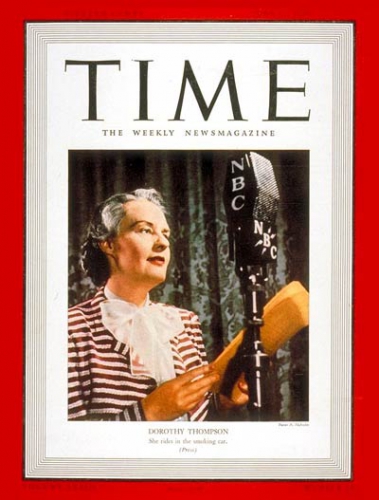 In 1939, Time Magazine named Thompson the second most popular and influential woman in America behind Eleanor Roosevelt.
In 1939, Time Magazine named Thompson the second most popular and influential woman in America behind Eleanor Roosevelt.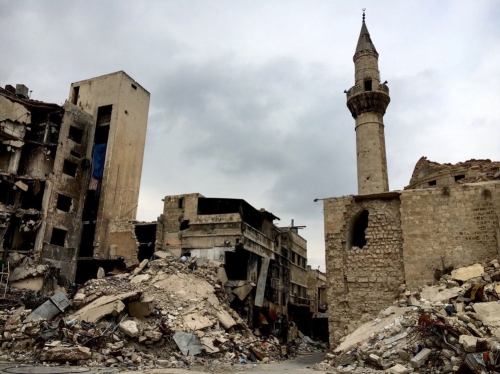
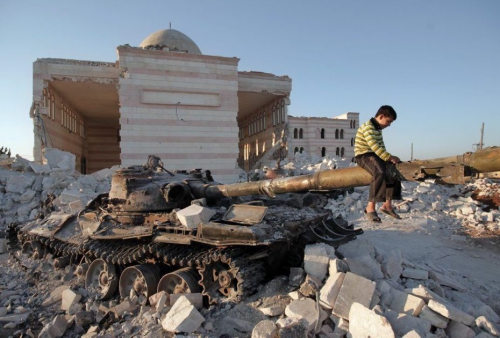
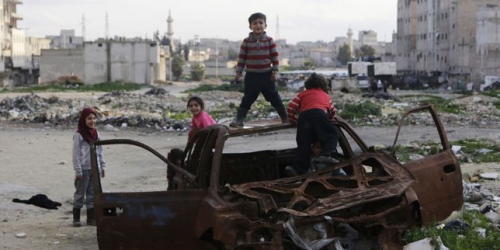
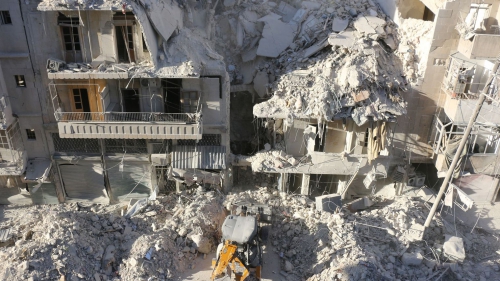

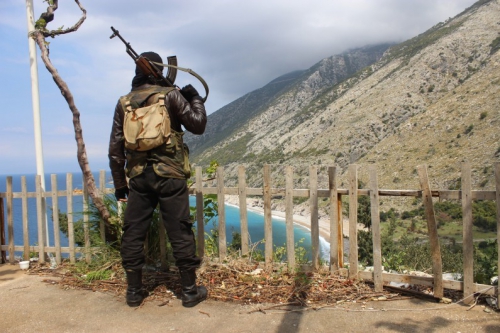
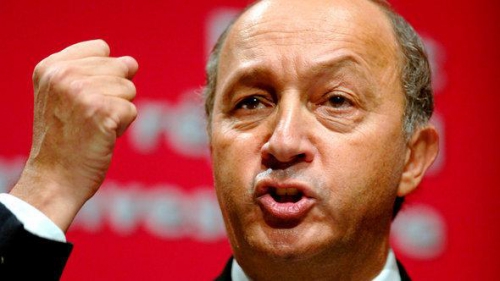
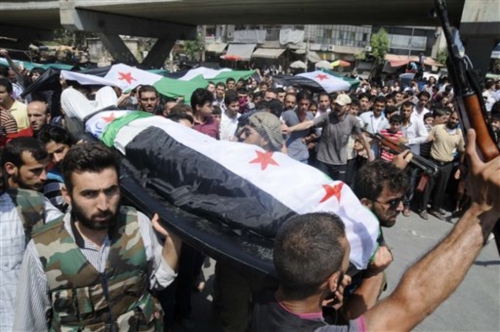
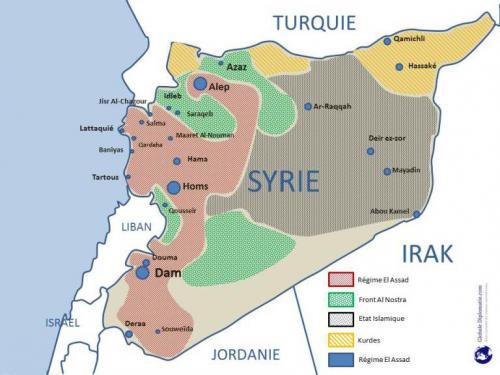
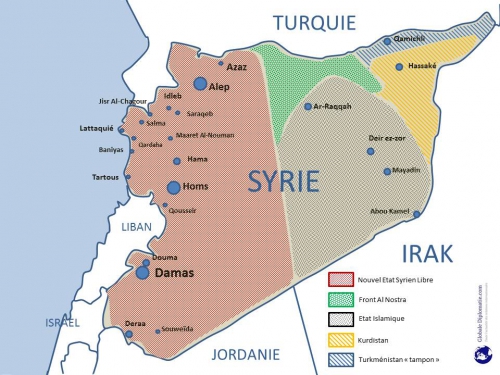
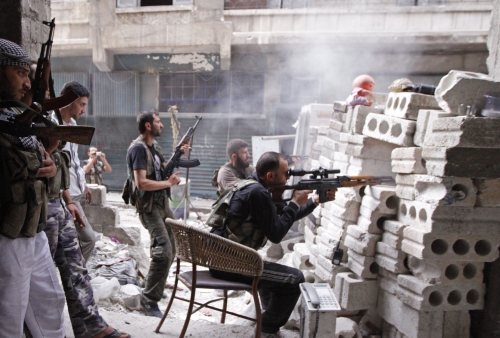
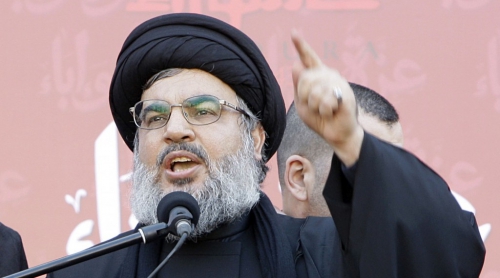
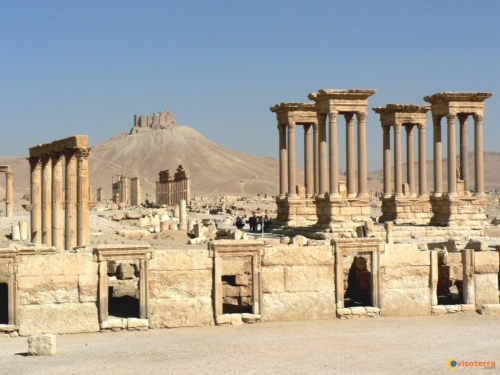
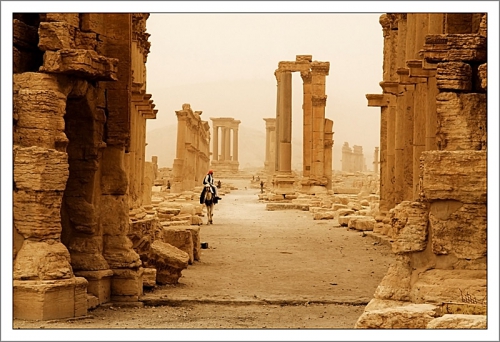
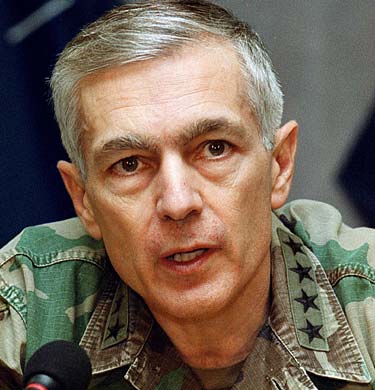 De nombreuses personnes connaissent le général Wesley Clark comme l’homme qui a quasiment déclenché la troisième Guerre mondiale, lorsqu’il a donné l’ordre aux Britanniques de tirer sur les forces de maintien de la paix russes qui avaient atterri à Pristina, la capitale du Kosovo, avant l’arrivée des Américains. On rapporte que le commandant britannique de la KFOR, le général Sir Mike Jackson, aurait répondu: «Je ne commencerai pas la troisième Guerre mondiale pour vous».
De nombreuses personnes connaissent le général Wesley Clark comme l’homme qui a quasiment déclenché la troisième Guerre mondiale, lorsqu’il a donné l’ordre aux Britanniques de tirer sur les forces de maintien de la paix russes qui avaient atterri à Pristina, la capitale du Kosovo, avant l’arrivée des Américains. On rapporte que le commandant britannique de la KFOR, le général Sir Mike Jackson, aurait répondu: «Je ne commencerai pas la troisième Guerre mondiale pour vous».